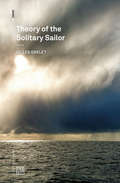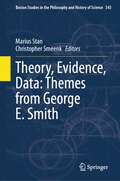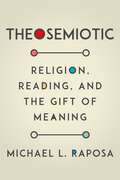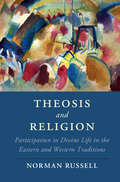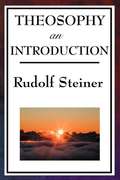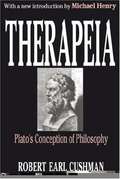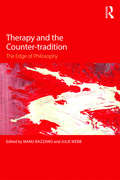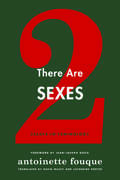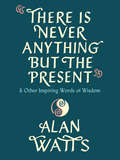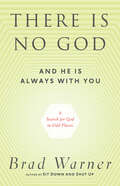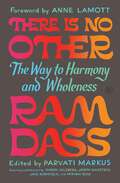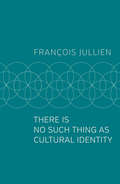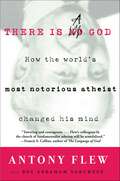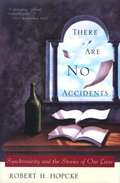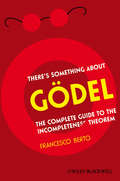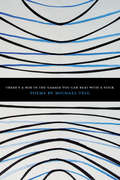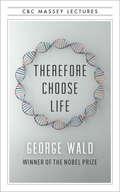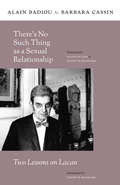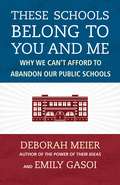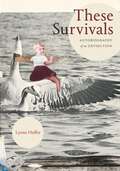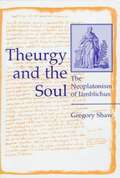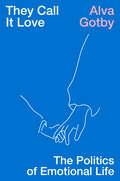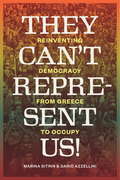- Table View
- List View
Theory of the Solitary Sailor (Urbanomic / Mono)
by Gilles GreletGrelet's solitary sailor is a radical theoretical figure, herald angel of an existential rebellion against the world and against philosophy's world-thought.Over a decade ago, Gilles Grelet left the city to live permanently on the sea, in silence and solitude, with no plans to return to land, rarely leaving his boat Théorème. An act of radical refusal, a process of undoing one by one the ties that attach humans to the world, for Grelet this departure was also inseparable from an ongoing campaign of anti-philosophy. Like François Laruelle's "ordinary man" or Rousseau's "solitary walker," Grelet's solitary sailor is a radical theoretical figure, herald angel of an existential rebellion against the world and against philosophy's world-thought, point zero of an anti-philosophy as rigorous gnosis, and apprentice in the herethics of navigation.More than a set of scattered reflections, less than a system of thought, Theory of the Solitary Sailor is a gnostic device. It answers the supposed necessity of realizing the world-thought that is philosophy (or whatever takes its place) with a steadfast and melancholeric refusal. As indifferently serene and implacably violent as the ocean itself, devastating for the sufficiency of the world and the reign of semblance, this is a lived anti-philosophy, a perpetual assault waged from the waters off the coast of Brittany, amid sea and wind.
Theory, Evidence, Data: Themes from George E. Smith (Boston Studies in the Philosophy and History of Science #343)
by Marius Stan Christopher SmeenkThis book builds on the path-breaking work of George E. Smith and further explores the notions of evidence and confirmation in the exact sciences from two perspectives: conceptual and historical. Contributions in this volume investigate the philosophical presuppositions, explanatory scope, and historical precursors of evidence in mathematical physics and related disciplines. The papers are written by and of interest to philosophers and historians of science.
Theosemiotic: Religion, Reading, and the Gift of Meaning
by Michael L. RaposaIn Theosemiotic, Michael Raposa uses Charles Peirce’s semiotic theory to rethink certain issues in contemporary philosophical theology and the philosophy of religion. He first sketches a history that links Peirce’s thought to that of earlier figures (both within the tradition of American religious thought and beyond), as well as to other classical pragmatists and to later thinkers and developments. Drawing on Peirce’s ideas, Raposa develops a semiotic conception of persons/selves emphasizing the role that acts of attention play in shaping human inferences and perception. His central Peircean presuppositions are that all human experience takes the form of semiosis and that the universe is “perfused” with signs. Religious meaning emerges out of a process of continually reading and re-reading certain signs.Theology is explored here in its manifestations as inquiry, therapy, and praxis. By drawing on both Peirce’s logic of vagueness and his logic of relations, Raposa makes sense out of how we talk about God as personal, and also how we understand the character of genuine communities. An investigation of what Peirce meant by “musement” illuminates the nature and purpose of prayer. Theosemiotic is portrayed as a form of religious naturalism, broadly conceived. At the same time, the potential links between any philosophical theology conceived as theosemiotic and liberation theology are exposed.
Theosis and Religion: Participation in Divine Life in the Eastern and Western Traditions (Cambridge Studies in Religion, Philosophy, and Society)
by Norman RussellTheosis, originally a Greek term for Christian divinisation or deification, has become a vogue word in modern theology. Although recent publications have explored its meaning in a selection of different contexts, this is the first book to offer a coherent narrative of how the concept of theosis developed in both its Eastern and Western versions. Norman Russell shows how the role of Dionysius the Areopagite was pivotal, not only in Byzantium but also in the late mediaeval West, where it strengthened the turn towards an individualistic interiority. Russell also relates theosis to changing concepts of religion in the modern age. He investigates the Russian version of theosis, introduced in the West by Russian members the Paris School after the 1917 Revolution. Since then, theosis has undergone additional development through the addition of esoteric elements which have since passed into the mainstream of all theological traditions and even into popular spirituality.
Theosophy: An Introduction
by Rudolf SteinerA clear, concise explanation of human nature; the worlds of body, soul, and spirit; the laws of reincarnation; and the workings of karma.
Therapeia: Plato's Conception Of Philosophy
by Robert E. Cushman"This reviewer has no doubts that Dr. Cushman has written a controversial book on Plato and in doing so has not only shown impressive familiarity with solid Platonic literature but is also very much at home with all the dialogues and salient passages bearing upon his thesis. "-John P. Anton, Ohio Wesleyen University "Whoever the reader is, he will find a hearty incitement to the articulation of ideas that American thought needs. "-L. W. Norris, Saturday Review Although modernity often seems to be crisis-ridden, human history shows that every age is beset by problems. These are rooted in the human psyche and derive from man's "divorce from his ground of Being. " Cushman's superb study of Plato illuminates how a transcendentally open soul deals with the universal resolution of humanity's most basic spiritual disorder. In Therapeia Cushman focuses on Plato's central theme: the soul's search for ultimate fulfillment and salvation from psychological, social, and political disorders. His detailed analysis begins with the critical importance of Socrates as the ideal of the well ordered and rightly oriented soul, an then considers the essential ontological interdependence of virtue and knowledge. He explores the meaning of anamnesis, eros, and inner conversion, the epistemological value of right belief and its relation to true knowledge, and the proper and improper uses of rhetoric, so that the soul might finally attain the wisdom that flows from its natural affinity for the Good. Cushman regarded Therapei a as his greatest achievement. It is clear that he inhabited Plato's mind and steeped himself in Plato's thoughts, while paying due regard to numerous other commentaries on Plato. His purpose, simple in conception but extraordinarily difficult in execution, is to communicate an intense awareness of Plato's thought as a living philosophy. One of the most profound and luminous books about Plato, this book will be of interest to philosophers, philosophy students (graduate and undergraduate), and anyone interested in philosophy in general and/or Plato in particular. Robert Earl Cushman (1913-1993) was research professor emeritus of Systematic Theology and dean of the Divinity School of Duke University. He was the author of Faith Seeking and Understanding, John Wesley's Experimental Divinity: Studies in Methodist Doctrinal Standards, and The Heritage of Christian Thought. Michael Henry studied with Gerhart Niemeyer at Notre Dame where he received his advanced degree in political theory in 1974. Since 1977, he has been teaching philosophy at St. John's University in New York.
Therapy and the Counter-tradition: The Edge of Philosophy
by Manu Bazzano Julie WebbTherapy & the Counter-tradition: The Edge of Philosophy brings together leading exponents of contemporary psychotherapy, philosophers and writers, to explore how philosophical ideas may inform therapy work. Each author discusses a particular philosopher who has influenced their life and therapeutic practice, while questioning how counselling and psychotherapy can address human ‘wholeness’, despite the ascendancy of rationality, regulation and diagnosis. It also seeks to acknowledge the distinct lack of philosophical input and education in counselling and psychotherapy training. The chapters are rooted in the Counter-Tradition, whose diverse manifestations include humanism, skepticism, fideism, as well as the opening of philosophy and psychology to poetry and the arts. This collection of thought-provoking essays will help open the discussion within the psychological therapies, by providing therapists with critical philosophical references, which will help broaden their knowledge and the scope of their practice. Therapy & the Counter-tradition: The Edge of Philosophy will be of interest to mental health professionals, practitioners, counselling and psychotherapy trainees and trainers, and academics tutoring or studying psychology. It will also appeal to those interested in psychology, meditation, personal development and philosophy.
There Are Two Sexes: Essays in Feminology
by Antoinette FouqueAntoinette Fouque cofounded the Mouvement de Libération des Femmes (MLF) in France in 1968 and spearheaded its celebrated Psychanalyse et Politique, a research group that informed the cultural and intellectual heart of French feminism. Rather than reject Freud's discoveries on the pretext of their phallocentrism, Fouque sought to enrich his thought by more clearly defining the difference between the sexes and affirming the existence of a female libido. By recognizing women's contribution to humanity, Fouque hoped "uterus envy," which she saw as the mainspring of misogyny, could finally give way to gratitude and by associating procreation with women's liberation she advanced the goal of a parity-based society in which men and women could write a new human contract. The essays, lectures, and dialogues in this volume finally allow English-speaking readers to access the breadth of Fouque's creativity and activism. Touching on issues in history and biography, politics and psychoanalysis, Fouque recounts her experiences running the first women's publishing house in Europe; supporting women under threat, such as Aung San Suu Kyi, Taslima Nasrin, and Nawal El Saadaoui; and serving as deputy in the European Parliament. Her theoretical explorations discuss the ongoing development of feminology, a field she initiated, and, while she celebrates the progress women have made over the past four decades, she also warns against the trends of counterliberation: the feminization of poverty, the persistence of sexual violence, and the rise of religious fundamentalism.
There Is Never Anything but the Present: And Other Inspiring Words of Wisdom
by Alan WattsA giftable collection of inspiring, uplifting, and enlightening words of wisdom from one of the most important voices in spirituality and self-help "The perfect guide for a course correction in life." —Deepak ChopraHere is an indispensible treasury of uplifting and enlightening quotations for guidance, support, and spiritual sustenance. In his classic works of philosophy, Alan Watts shared timeless wisdom with readers worldwide. In this book are some of his most thought-provoking words to live by, to reflect upon, and to read for inspiration, knowledge, and growth.
There Is No God and He Is Always with You: A Search for God in Odd Places
by Brad WarnerCan you be an atheist and still believe in God? Can you be a true believer and still doubt? Can Zen give us a way past our constant fighting about God? Brad Warner was initially interested in Buddhism because he wanted to find God, but Buddhism is usually thought of as godless. In the three decades since Warner began studying Zen, he has grappled with paradoxical questions about God and managed to come up with some answers. In this fascinating search for a way beyond the usual arguments between fundamentalists and skeptics, Warner offers a profoundly engaging and idiosyncratic take on the ineffable power of the “ground of all being.”
There Is No Other: The Way to Harmony and Wholeness
by Ram Dass Parvati MarkusAn essential balm for these tumultuous times, this thoughtful and inspiring guide features newly gathered teachings to abandon the idea there is an “other,” bridging differences and cherishing our lives in the world, from beloved spiritual leader Ram Dass.With the world seeming to teeter between democracy and authoritarianism, between humanitarianism and individualism, Ram Dass’s teachings on wholeness and unity are more needed than ever.There Is No Other is a groundbreaking work showcasing the late spiritual leader’s thoughts and insights on broaching the divide and bringing disparate souls together. In these profound, newly gathered writings, Ram Dass shows us how a house divided against itself—whether that “house” is our individual self or the society in which we live—can come together in wholeness. There is no “other,” he explains. It is all one.Structured in three sections, There Is No Other teaches us to open ourselves, come together in community, and love one another—and ourselves—across all our seeming contradictions and divisions. Anne Lamott contributes a beautiful foreword and each section is followed by a short essay reflecting on the endurance of Ram Dass’s ideas penned by Sharon Salzberg, Joseph Goldstein, Jack Kornfield, and Mirabai Bush, as well as guided meditations to deepen each lesson.As he leads us toward wholeness within our unique selves and as a human community, Ram Dass gives us the most precious gift: hope. Only in seeing ourselves in our complexity can we come together and honor our incarnations on the sacred planet we inhabit.
There Is No Such Thing as Cultural Identity
by François JullienAs people throughout the world react to globalization and revert to nationalism, they are proclaiming distinct cultural identities for themselves. Cultural identity seems to offer a defensive wall against the homogenizing effects of globalization and a framework for nurturing and protecting cultural differences. In this short and provocative book, François Jullien argues that this emphasis on cultural identity is a mistake. Cultures exist in relation to one another and they are constantly mutating and transforming themselves. There is no cultural identity, there are only what Jullien calls ‘resources’. Resources are created in a certain space, they are available to all and belong to no one. They are not exclusive, like the values to which we proclaim loyalty; instead, we deploy them or not, activate them or let them fall by the wayside, and each of us as individuals is responsible for these choices. This conceptual shift requires us to redefine three key terms – the universal, the uniform and the common. Equipped with these concepts, we can rethink the dialogue between cultures in a way that avoids what Jullien sees as the false debate about identity and difference. This powerful critique of the modern shibboleth of cultural identity will appeal to anyone interested in the great social and political questions of our time.
There Is a God: How the World's Most Notorious Atheist Changed His Mind
by Antony Flew Roy Abraham VargheseIn one of the biggest religion news stories of the new millennium, the Associated Press announced that Professor Antony Flew, the world's leading atheist, now believes in God. Flew is a pioneer for modern atheism. His famous paper, Theology and Falsification, was first presented at a meeting of the Oxford Socratic Club chaired by C. S. Lewis and went on to become the most widely reprinted philosophical publication of the last five decades. Flew earned his fame by arguing that one should presuppose atheism until evidence of a God surfaces. He now believes that such evidence exists, and There Is a God chronicles his journey from staunch atheism to believer. For the first time, this book will present a detailed and fascinating account of Flew's riveting decision to revoke his previous beliefs and argue for the existence of God. Ever since Flew's announcement, there has been great debate among atheists and believers alike about what exactly this "conversion" means. There Is a God will finally put this debate to rest. This is a story of a brilliant mind and reasoned thinker, and where his lifelong intellectual pursuit eventually led him: belief in God as designer.
There are no Accidents
by Robert H. HopckeAn informal examination of Jung's theory of synchronoicity through the telling of stories.
There's Something About Gödel: The Complete Guide to the Incompleteness Theorem
by Francesco BertoBerto’s highly readable and lucid guide introduces students and the interested reader to Gödel’s celebrated Incompleteness Theorem, and discusses some of the most famous - and infamous - claims arising from Gödel's arguments. Offers a clear understanding of this difficult subject by presenting each of the key steps of the Theorem in separate chapters Discusses interpretations of the Theorem made by celebrated contemporary thinkers Sheds light on the wider extra-mathematical and philosophical implications of Gödel’s theories Written in an accessible, non-technical style
There's Something about Mary: Essays on Phenomenal Consciousness and Frank Jackson's Knowledge Argument
by Peter Ludlow Yujin Nagasawa Daniel StoljarIn Frank Jackson's famous thought experiment, Mary is confined to a black-and-white room and educated through black-and-white books and lectures on a black-and-white television. In this way, she learns everything there is to know about the physical world.
There's a Box in the Garage You Can Beat With a Stick
by Michael TeigMichael Teig's long-awaited second collection is the perfect poetry companion: witty, intriguing, and self-effacing as it picks up overheard conversations and the accidental encounters of everyday life. As Stephen Dobyns wrote, Teig's poems "have this ability to make the world fresh again and make us realize once again why we love the world, despite its failings and our own."
There's a Box in the Garage You Can Beat With a Stick (American Poets Continuum)
by Michael TeigMichael Teig’s long-awaited second collection is the perfect poetry companion: witty, intriguing, and self-effacing as it picks up overheard conversations and the accidental encounters of everyday life. As Stephen Dobyns wrote, Teig's poems "have this ability to make the world fresh again and make us realize once again why we love the world, despite its failings and our own."
Therefore Choose Life: The Found Massey Lectures (The CBC Massey Lectures)
by George WaldThis recently discovered and very timely 1970 Massey Lectures by Nobel Prize-winning scientist George Wald, now in print for the first time ever.Where did we come from, who are we, and what is to become of us — these questions have never been more urgent. Then, as now, the world is facing major political and social upheaval, from overpopulation to nuclear warfare to environmental degradation and the uses and abuses of technology. Using scientific fact as metaphor, Nobel Prize–winning scientist George Wald meditates on our place, and role, on Earth and in the universe. He urges us to therefore choose life — to invest in our capabilities as human beings, to heed the warnings of our own self-destruction, and above all to honour our humanity.
There’s No Such Thing as a Sexual Relationship: Two Lessons on Lacan (Insurrections: Critical Studies in Religion, Politics, and Culture)
by Barbara Cassin Alain BadiouPublished in 1973, "L'Etourdit" was one of the French philosopher Jacques Lacan's most important works. The book posed questions that traversed the entire body of Lacan's psychoanalytical explorations, including his famous idea that "there is no such thing as a sexual relationship," which seeks to undermine our certainties about intimacy and reality. In There's No Such Thing as a Sexual Relationship, Alain Badiou and Barbara Cassin take possession of Lacan's short text, thinking "with" Lacan about his propositions and what kinds of questions they raise in relation to knowledge. Cassin considers the relationship of the real to language through a Sophist lens, while the Platonist Badiou unpacks philosophical claims about truth. Each of their contributions echoes back to one another, offering new ways of thinking about Lacan, his seminal ideas, and his role in advancing philosophical thought.
These Schools Belong to You and Me: Why We Can't Afford to Abandon Our Public Schools
by Deborah Meier Emily GasoiA challenge to narrow, profit-driven conceptions of school success and an argument for protecting public education to ensure that all students become competent citizens in a vibrant democracyIn These Schools Belong to You and Me, MacArthur award–winning educator, reformer, and author Deborah Meier draws on her fifty-plus years of experience to argue that the purpose of universal education is to provide young people with an “apprenticeship for citizenship in a democracy.” Through an intergenerational exchange with her former colleague and fellow educator Emily Gasoi, the coauthors analyze the last several decades of education reform, challenging narrow profit-driven conceptions of school success. Reflecting on the trajectory of education and social policies that are leading our country further from rule “of, for, and by the people,” the authors apply their extensive knowledge and years of research to address the question of how public education must change in order to counter the erosion of democratic spirit and practice in schools and in the nation as a whole. Meier and Gasoi candidly reflect on the successes, missteps, and challenges they experienced working in democratically governed schools, demonstrating that it is possible to provide an enriched education to all students, not just the privileged few. Arguing that public education and democracy are inextricably bound, and pushing against the tide of privatization, These Schools Belong to You and Me is a rousing call to both save and improve public schools to ensure that all students are empowered to help shape our future democracy.
These Survivals: Autobiography of an Extinction (Writing Matters!)
by Lynne HufferA collage-style work in fragments, Lynne Huffer’s These Survivals brings together philosophy, memoir, poetry, and original multimedia artworks to articulate an ethics of living on a devastated planet. Focusing on climate change and mass species extinction, Huffer approaches ruination through assemblages rendered in sharp-edged prose, vibrant color images, and experimental features that include black-out poems, weather reports, and abecedarian essays. She considers her struggles with everyday life and confronts the immensity of extinction across the expanse of geological time, recognizing the self’s insignificance in the context of the planet’s 4.5-billion-year existence. As she moves across autobiographical, political, and literary registers, her abiding theme is the repeated phrase: the fragment remains while the whole crumbles. At every turn, Huffer insists on the fragmentary, provisional nature of anything taken to be whole as well as the impartial conditions under which we write, at times experienced as constraint and at others, freedom. Reveling in interruption, obliquity, and layering, Huffer opens space for thought to emerge in unexpected and innovative ways—ways that are grounded in the material practices of writing and living.
Theurgy and the Soul
by Robert ShawThis is a philosophically demanding scholarly work about those who remained non-Christian during the last days of the Roman Empire. Many adhered to Plato's philosophy and those of the Roman stoics.
They Call It Love: The Politics of Emotional Life
by Alva GotbyThe work of love is a feminist problem, and it demands feminist solutions Comforting a family member or friend, soothing children, providing company for the elderly, ensuring that people feel well enough to work; this is all essential labour. Without it, capitalism would cease to function. They Call It Love investigates the work that makes a haven in a heartless world, examining who performs this labor, how it is organised, and how it might change. In this groundbreaking book, Alva Gotby calls this work &“emotional reproduction,&” unveiling its inherently political nature. It not only ensures people&’s well-being but creates sentimental attachments to social hierarchy and the status quo. Drawing on the thought of the feminist movement Wages for Housework, Gotby demonstrates that emotion is a key element of capitalist reproduction. To improve the way we relate to one another will require a radical restructuring of society.
They Can't Represent Us!
by David Harvey Dario Azzellini Marina SitrinMass protest movements in disparate places such as Greece, Argentina, and the United States ultimately share an agenda--to raise the question of what democracy should mean. These horizontalist movements, including Occupy, exercise and claim participatory democracy as the ground of revolutionary social change today. Written by two international activist intellectuals and based on extensive interviews with movement participants in Spain, Venezuela, Argentina, across the United States, and elsewhere, this book is an expansive portrait of the assemblies, direct democracy forums, and organizational forms championed by the new movements, as well as an analytical history of direct and participatory democracy from ancient Athens to Zuccotti Park. The new movements put forward the idea that liberal democracy is not democratic, nor was it ever.From the Trade Paperback edition.championed by the new movements, and its truly global focus provides a kind of political travelogue of the cutting edge of global activism.
